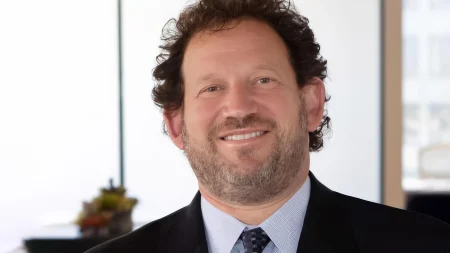Independent Trades Take a Stand Against Private Equity
In a bold move that has sent ripples through the skilled trades industry, Nexstar Network has effectively told private equity firms they’re no longer welcome in its membership ranks. This decisive action represents a significant pushback against the growing corporate consolidation of America’s plumbing, heating, cooling, and electrical services sectors—traditionally the domain of independent contractors and small business owners.
Julian Scadden, Nexstar’s president and CEO, announced on September 11 that the organization has severed ties with every private equity-backed member, a dramatic purge that eliminated approximately one-third of its 800-member base. This wasn’t a decision made lightly—it will cost the organization roughly half its revenue. Scadden’s explanation was both philosophical and practical: “Growth without purpose is cancer. It spreads. It consumes. It eventually kills the host.” The move represents a recommitment to Nexstar’s founding mission of supporting independent tradespeople who aspire to become successful business owners, rather than serving as a resource for well-funded corporate entities. The organization is essentially choosing its soul over its wallet, believing that its coaching and resources should benefit those who need them most—small operators struggling to build million-dollar businesses, not financial firms with teams of actuaries and deep pockets.
The decision highlights a significant shift in the trades landscape that has been developing for years. Private equity firms have been aggressively moving downmarket, with 60% of PE-backed companies in 2022 having 100 or fewer employees, according to Ernst & Young. The median PE-backed company had just 69 employees. These aren’t massive corporations being acquired—they’re the small businesses that form the backbone of American communities and local economies. The skilled trades have become particularly attractive targets for acquisition, with hundreds of HVAC and plumbing businesses absorbed by private equity in recent years. These acquisitions often follow “roll-up” strategies where dozens of small operators are combined under a single brand, creating regional or national chains from what were once independent local businesses.
Examples of this consolidation abound. Sila Heating & Air Conditioning made 28 acquisitions after receiving investment from Morgan Stanley Capital Partners in 2021, before Goldman Sachs Alternatives acquired a majority stake in late 2024. Similarly, FirstCall Mechanical has made 15 acquisitions since private equity firm SkyKnight took control of the plumbing and HVAC company in 2022. This pattern is repeating across the country as private equity firms seek returns in industries that have traditionally been fragmented but offer stable cash flows and essential services that consumers need regardless of economic conditions. The trades offer particularly attractive targets because they can’t be outsourced overseas and typically face limited disruption from technological innovation.
Nexstar’s stance represents an emerging backlash against this consolidation trend. Critics of private equity’s role in the trades worry about several potential consequences: higher prices for consumers as competition decreases, job losses as operations are streamlined, and most significantly, fewer opportunities for skilled tradespeople to achieve the American dream of business ownership. When large corporate entities own most service companies in a region, technicians have fewer paths to independence and entrepreneurship. They become permanent employees rather than potential business owners. Proponents of private equity investment counter that it brings much-needed capital, professional management systems, and growth opportunities to industries that have sometimes struggled with modernization and succession planning.
By taking this stand, Nexstar is making a calculated bet on what its members truly value. It’s gambling that they cherish independence, community connection, and entrepreneurial opportunity more than they desire an eventual lucrative exit through a private equity buyout. The organization is positioning itself as a champion for the traditional path in the trades—start as a technician, learn the business, and eventually own your own shop. Whether this bet pays off remains to be seen. For many business owners, selling to a private equity firm represents the culmination of decades of hard work and risk-taking—a well-earned payday that can fund retirement and provide financial security. While people may romanticize the idea of independent local businesses, when faced with life-changing amounts of money, principles sometimes take a back seat to practicality. Nexstar has drawn a line in the sand, but only time will tell if its members and the broader trades community will stand with them in preserving independence over the allure of corporate consolidation.








